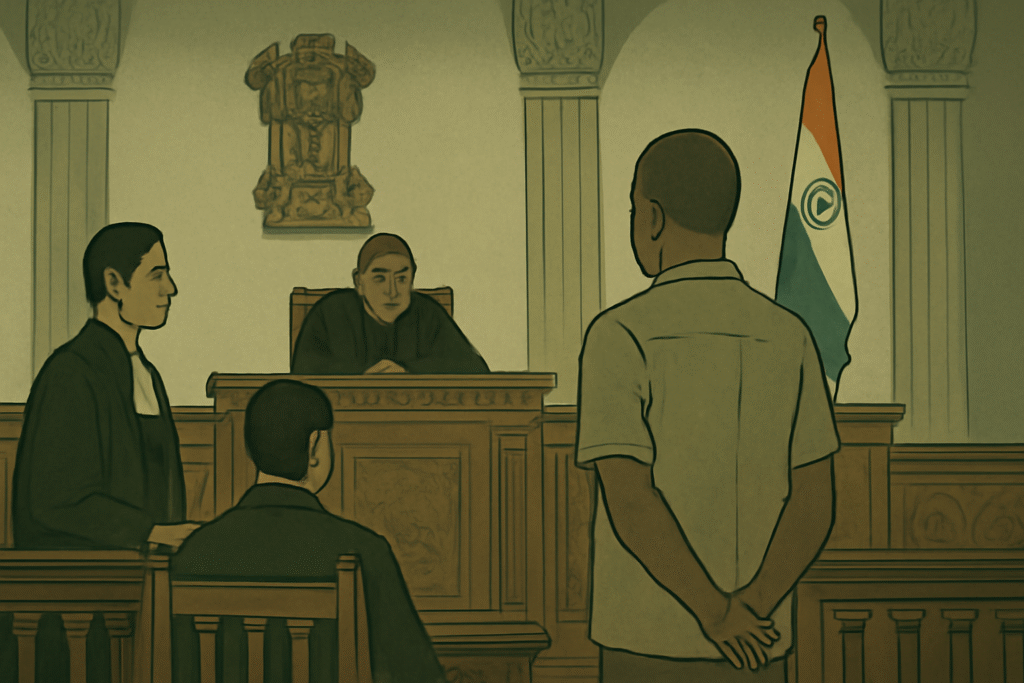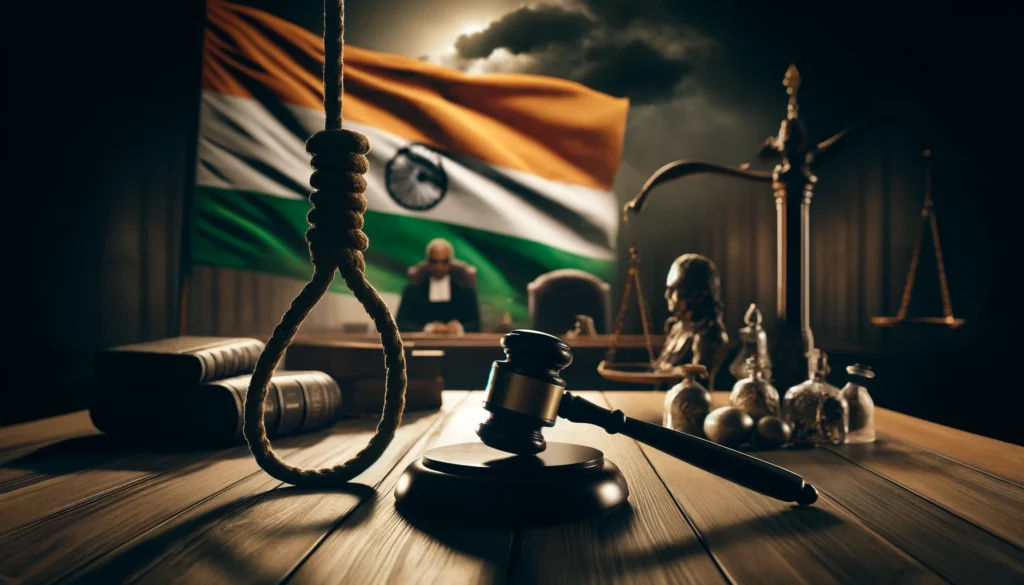Published On: 09th September, 2023
Authored By: Kriti Sharma
Judicial Review of Police Administrative Action in India
Discretionary Powers are conferred upon administrative authorities to expedite a liberal approach premised on subjective evaluation. This has become an intriguing requisite due to the impossibility of prescribing the factors on which the choice should be made precisely and in advance. A wide range of powers is thus exercised on the intuitive satisfaction of an “administrative authority”, ranging from the power to detain a person without trial to the power to order an investigation into the affairs of a company.
As per Black’s Law Dictionary, “Judicial Review” may be defined as a “Court’s power to review the actions of other branches of government, especially the courts’ power to invalidate legislative and executive actions as being unconstitutional.” Judicial review includes the power of courts to declare any statute or order that is based on a provision that is unconstitutional or difficult to implement, as well as any other public action that is at odds with the fundamental law of the land.
Writs such as habeas corpus, writ of mandamus of certiorari, prohibition, and quo warranto may be used to challenge administrative judgments. Conventions, precedents, legislative instruments, and statutes are the fundamental sources of administrative law.
Using the Legal System By upholding the rule of law, administrative entities are held more accountable for their actions. When it comes to common law countries such as Britain, it all started there. England also introduced the concept of judicial review to India. Prerogatives were established in India using a model from the Court of the King’s Bench to ensure that officials/authorities followed the law while carrying out their judicial or non-judicial duties. To hold governments responsible when they adopt legislation that is unlawful or arbitrary, judicial review may be a strong instrument. Judicial review is a core element of constitutionalism since it helps to guarantee that the government has a restricted scope of authority.
Administrative activities may be statutory or non-statutory, with or without legal authority. What each state chooses to do about it is up to them. Administrative actions that are not required by law, such as senior police officers delivering directives to subordinates without the need for legal authority, may result in disciplinary action if the subordinates disobey.
An investigation into whether a “cause of action” against police officers in their capacity for violating constitutional rights could enhance the oversight by the Police Complaint Authorities is undertaken given the reported failure of state and central governments to fully implement the apex Court’s directions in “Prakash Singh v. Union of India”.[1] Since “Police” is included in the State List of the 7th Schedule under Article 246 of the Indian Constitution, state governments may enact legislation governing the police in their jurisdictions. Despite the strong federal nature of police regulations in India, which is a quasi-federal republic, the central government is also active in the control of police forces. All-India Services regulates the recruitment of IPS senior officers, for example. The Central Reserve Police Force and the Border Security Force are paramilitary forces under the control of the Central Government, while the Ministry of Home Affairs is in charge of police matters. Laws controlling the police in India are organized around the Indian Police Act, which was passed in 1861. Most states either embrace this central legislation or have laws based on it. Police reforms have been implemented in several ways throughout the last 3 decades., The National Police Commission has issued around seven to eight reports including many suggestions, but no action was taken.
Supreme Court ruled that these changes have to be implemented immediately after “Vineet Narian v. Union of India”[2] in 1998. The Ribeiro Committee issued two reports one in 1998 and the other in 1999; “Padmanabhaiah Committee Report” was issued in 2000; and “The Malimath Committee” was issued in the year 2002. Finally, in “Prakash Singh V. Union of India[3]”,n, the Supreme Court addressed all of these issues. Three components of police organization are addressed in the ruling, namely, police autonomy, accountability, and efficiency. Then there were precise instructions from the Supreme Court about what the federal and state governments should do until legislation was passed in this area. It was noted State governments must set up State Security Commissions to guard against political meddling in law enforcement operations. fixing the selection and tenure requirements for Chiefs of Police (DGP); fixing the tenure requirements for Inspectors General of Police (IGP), Deputy IGPs, District Police Superintendents, and Station Officers; separating the investigation role from “law and order” functions; instituting a Police Complaints Authority; creating the National Security Commission; and instituting the Police Establishment Board, and instituting the Police Complaints Authority and the National Security Commission.
Taking into account the notions of intra-ultra vires and the standards of natural justice, the administration or executive may be held accountable for its actions via judicial review. Upon receiving an application for judicial review, the court must evaluate whether the entity in issue acted within or beyond the bounds of its authority. Lawsuits claiming that a judgment was made in an unreasonable manner or violation of natural justice norms are the most common types of legal action.
Lord Diplock said, “One may readily group the grounds for judicial review of administrative action under the three areas. The first reason is illegality, the second is irrationality, and the third is procedural impropriety, not to say that additional progress cannot be made on a case-by-case basis. Over time, more land was purchased and added to the property.”
In the case of Paramvir Singh Saini v. Daljit Singh[3], the Supreme Court emphasized that the police have been given discretionary powers to deal with law and order and emergencies. Still, it has been visible even to the naked eye that these powers are arbitrarily used by individuals by subjecting them to cruelty like that of custodial violence and deaths. Supreme Court insisted that such activities of police need to be checked and kept an eye upon to make them accountable for their actions. In light of this, only the apex court issued a guideline to be followed which insisted upon the installation of CCTV cameras in police stations and like organizations to keep a check on their functioning. Apart from this, these recordings should be kept for at least a year. A similar kind of guideline to use videography in criminal investigation was given in the case of Shafi Mohammad V. State of Himachal Pradesh[4]. But time again it has been seen that these guidelines starting from those laid down in the landmark judgment of DK Basu v. State of West Bengal[5], have not been complied with by the police department and they remain written on paper only.
The inherent disadvantages of judicial control are well-known. It’s more suited for resolving disputes than doing administrative tasks, in my opinion. The administration and the judiciary work together to ensure that the government is fulfilling its constitutional responsibilities in conformity with the law. It is to be ensured that this judicial review extends to the lever of judicial activism but does not become a case of judicial overreach.
[1] “Prakash Singh V. Union Of India, (2006) 8 SCC 1”
[2] “Vineet Narain & Others V. Union Of India & Another, (1997)1 Scc 226””
[3] “Paramvir Singh Saini V. Daljit Singh, (2020) 3 SCC (Cri) 150”
[4] “Shafi Mohammad V. State Of Himachal Pradesh, (2018) 2 SCC 801”
[5] “DK Basu V. State Of West Bengal, (1996), SC 10”




